As a civil engineer and construction worker, you may have plans to build new roads or repair damaged surfaces. For that purpose, you should know about asphalt and how it is made in factories.
In today’s simple guide, we will explain to you the basics of asphalt manufacturing, asphalt paving steps, its benefits and applications.
Composition of Asphalt: Ingredients of Asphalt
Below are primary materials that are used in the asphalt production process.
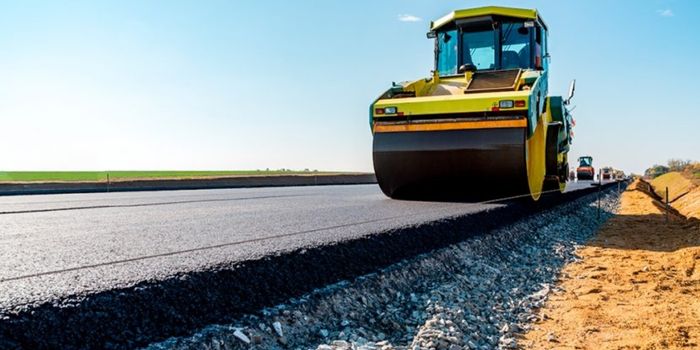
Mineral Aggregates (Backbone of Asphalt)
You will find mineral materials in almost every asphalt mixture. These include crushed stones, sand, limestone dust, fly ash and cement. Asphalt composition is mostly based on these minerals like 95% of the full mix.
They make your asphalt mix stable & more resistant to cracks plus provide the ability to handle traffic loads. Further, minerals fill the small gaps between the aggregates and bitumen.
Bitumen Binder
Bitumen is a thick black and sticky material. It holds asphalt together. This ingredient works like glue and binds the aggregates into a solid mix. This sealing agent makes asphalt flexible, waterproof and durable.
Without bitumen, asphalt can break and damage due to heavy traffic. It’s actually an important ingredient that gives your roads a smooth and long-lasting surface.
Additives
To improve the overall performance of asphalt, you can add extra materials into asphalt. These additives make your roads safe, strong and long lasting. For highways, some of them resist traffic and others protect it from heat, cold and water damage.
But, you should carefully choose these additives to get the best asphalt according to your construction project.
Asphalt Production Process: How is Asphalt Made?
Asphalt is a globally used road pavement material to construct roads, modern infrastructures, and parking lots. The asphalt formation is a step-by-step procedure. Each stage has an important role in turning raw materials into a strong and durable asphalt for your road surface.
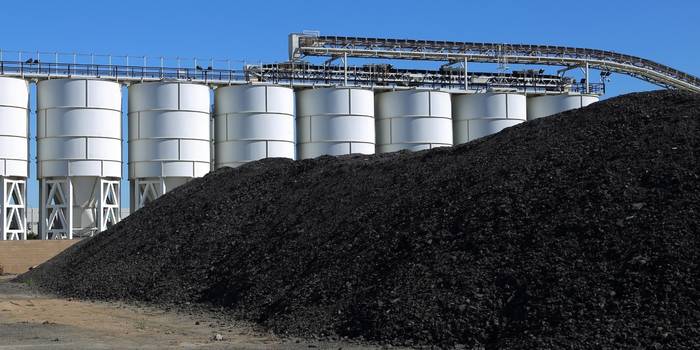
1. Raw Material Sourcing & Preparation
First of all, you have to collect all required raw materials. For example: aggregates like stones, sand and gravel, along with bitumen. You should carefully select these materials so it can match with your road needs.
Once you sourced them, now you can clean, sort by size and prepare them. Also make sure that the mix is strong, durable and ready for the next stage.
2. Heat and Dry Aggregate
In this step, you have to heat up the aggregates to remove any moisture. For this purpose, you can use a rotating drum. Water can make your mix weak. That’s why dry aggregates are important.
If you heat them well, it will also make it easier for you to blend materials with bitumen. In this way, you will also see asphalt sticks well and form smooth and strong surfaces to drive on.
3. Combine the Components
Now you blend bitumens and additives with heated aggregates. You have to do it at a high temperature so everything mixes properly. As a result, it will create a uniform asphalt mix. Additionally, you will get a strong material that can handle heavy traffic and changing weather.
4. Quality Inspection
After you complete mixing, you should check the asphalt quality. Tests are done to see if the mix has the right strength, flexibility & durability. You can also check if the binder and aggregates are balanced.
5. Transport and Laying the Asphalt
Now you can move asphalt to your construction site by the use of special trucks. Because, these trucks keep the mix hot so it can stay workable. At the site, you can spread asphalt evenly on the road with machines.
6. Compaction and Cooling
Finally, you can press the asphalt with heavy rollers. This step removes empty spaces and locks the mix tightly. With this approach, proper compaction makes your road long lasting and smooth. Then, you must leave it to cool down. Because, cooled asphalt will be more stable and ready for vehicles to use.
5 Different Types of Asphalt (Asphalt Types)
You will find different kinds of asphalt. These variations of asphalt depend on how it’s made and where you use it such as building roads, driveways and parking areas. When you know about these types, you can choose the right asphalt for your project.
Hot-Mix Asphalt (HMA)
Hot mix asphalt is the most common type used on roads and highways. You can make it by heating aggregates and bitumen at high temperature (about 150 to 165 °C) before you mix it.
This will build a flexible, durable, and strong surface. Generally, you will see it on heavy-traffic roads because it can handle weight and weather very well.
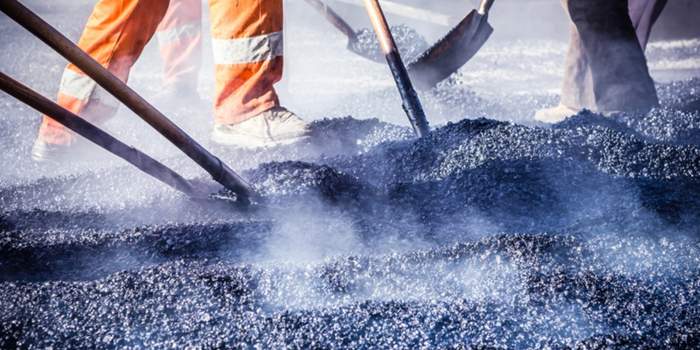
Porous Asphalt
Porous asphalt is used to allow the passage of water from the surface. Instead of staying on the road, the rainwater can easily drain into the ground below. It improves your safety while you drive on it and also prevents flooding.
Mostly, porous asphalt used for parking lots, recreational zones, driveways and areas where you need good water drainage.
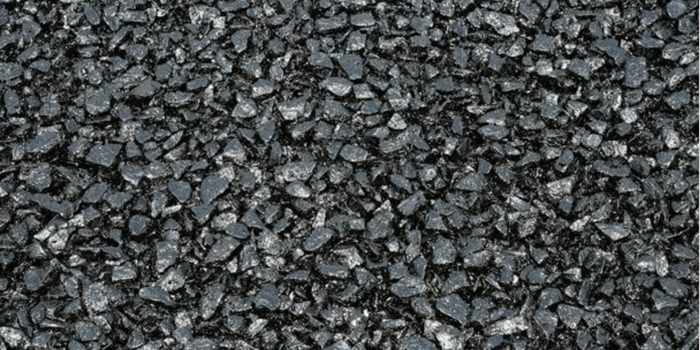
Warm-Mix Asphalt (WMA)
Warm mix asphalt is produced at lower temperatures around 11 to 56°C. This makes asphalt plant production fast, easy as well as safe for workers. It also consumes less energy which is beneficial for your environment. Warm mix is best for your quick and efficient construction.
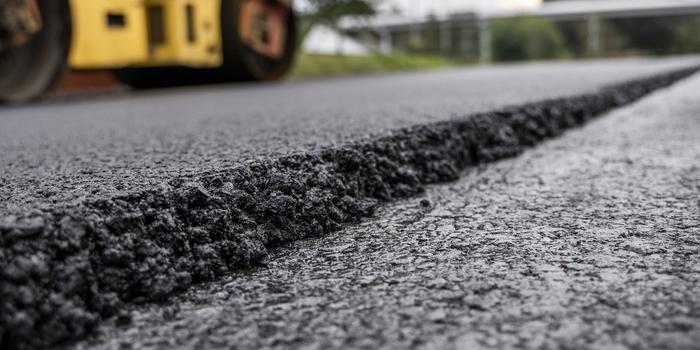
Dense Graded Asphalt (DGA)
To fill all potholes on the road, you can mix different aggregate sizes to create dense graded asphalt. In this way, you can construct strong, even and long lasting paths. DGA made sources can easily handle heavy traffic pressure. This is the reason that it is used on highways and busy roads.
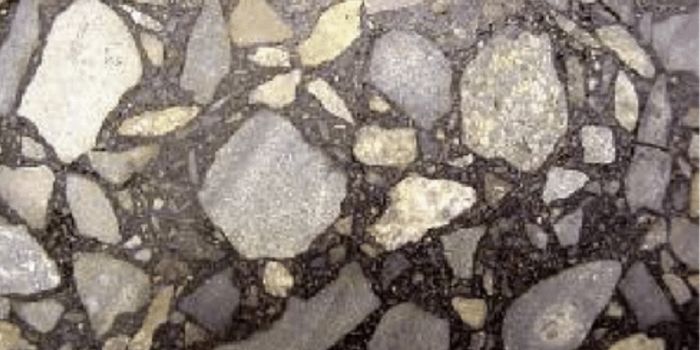
Cold-Mix Asphalt
For your small construction projects and quick repair, you must use cold mix asphalt. For example: on rural roads and patching damaged areas. Basically, it is made with aggregates and bitumen which are mixed at normal temperatures.
You don’t need to provide heat to materials at all. Its plus points is that you can apply it without any special equipment.
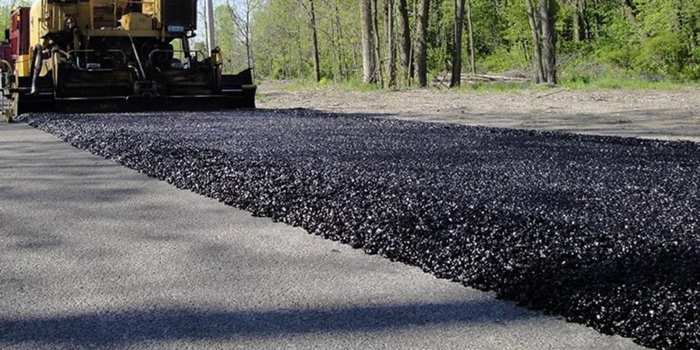
What is Asphalt Paving?
Asphalt paving meaning the process of covering roads, driveways or parking lots with asphalt. First, you can spread the asphalt mix, compact it and then let it cool.
This paving process will make your roads durable and strong enough to handle traffic and weather damages. Furthermore, it will give you a smooth road so you can easily drive your vehicles and walk on too.
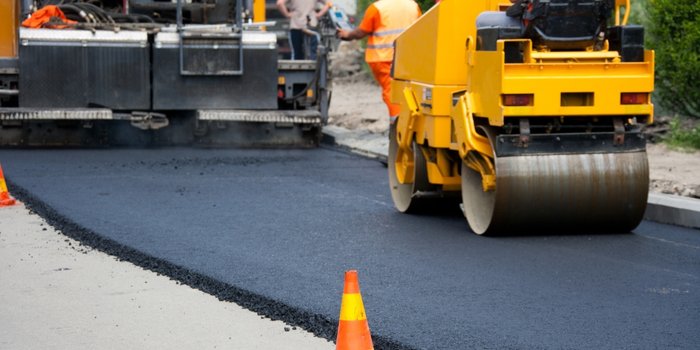
Major steps for asphalt paving are as follow:
- Site Preparation
- Base Layer Installation
- Asphalt Mixing
- Asphalt Placement
- Compaction
- Cool and Finish
Applications of Asphalt
Asphalt has many uses in construction and paving. Its strong and flexible nature makes it ideal for your different types of projects. Below are some common purposes of asphalt.
- Driveway Asphalt Paving
- Airport & Runway
- Bridge Decks
- Промышленное использование
- Asphalt Paving For Racetracks
- Building Construction
Asphalt Manufacturing Companies
Asphalt production businesses produce and supply asphalt for your different types of building works. Джеквин is the top supplier of road asphalt in China. We have 18 years of experience in shipping road products and materials.
Our supply chain is active in 70 countries. You can trust us for high-quality asphalt that exactly meets your construction standards.
Benefits of Asphalt Paving
Asphalt paving has several advantages that make it your top choice. Below are the main ones.
- Quick Installation
- Низкие эксплуатационные расходы
- Smooth Surface
- Долговечность
- Cost-Effective
- Устойчивость к погодным условиям
- Noise Reduction
Is Asphalt Sustainable?
Absolutely yes. You can recycle old asphalt to make new roads, which reduces waste. The production of asphalt also uses less energy and modern techniques lower emissions too. This makes them an eco-friendly choice for you for your construction projects.
How Long will an Asphalt Driveway Last?
Actually, the life span of asphalt depends on different factors. For example: quality of materials, installation & regular maintenance. However, asphalt driveway can last for 15 to 20 years. The durability can be increased up to 30 years with proper care.
Заключительные слова
Now you can see asphalt production follows a careful step-by-step method. You should wisely select the raw material for its preparation and the final compaction techniques.
You can связаться с нами for more inquiries about your road projects. We also offer you asphalt materials, which make your building reliable and long-lasting.


-80x69.png)

